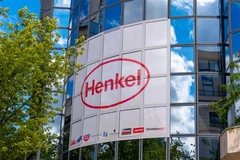Why the wait? EU to ban intentionally added microplastics but environmentalists decry implementation time

28 Apr 2023 --- The European Commission (EC) has voted to adopt proposals on restricting intentionally added microplastics in products, including packaging, cosmetics and astroturf, through its Registration, Evaluation, Authorisation and Restriction of Chemicals (REACH) legislation.
While environmental organizations are celebrating the move, some are concerned that companies are being given an excessively long time to implement changes. Some recycling industry bodies are also saying the restrictions will result in more waste being sent abroad for incineration.
Each year, more than 42,000 tons of microparticles leak into the environment, resulting in various threats to human and environmental health, according to the European Environment Agency.

“This restriction is key to tackling the severe environmental damage caused by microplastics. But the effectiveness of the ban is weakened by the time it actually takes to implement the bans and the exemptions,” says Dolores Romano, senior policy officer for chemicals at the European Environmental Bureau (EEB).
“This prompts us to call on authorities to implement additional measures in their respective countries to prevent further pollution by accelerating the elimination of these plastics.”
 Recycling assocations say the restrictions could increase incineration rates.First steps, long-term goals
Recycling assocations say the restrictions could increase incineration rates.First steps, long-term goals
Before the official adoption of the restrictions, the European Parliament and the Council of the EU will have a three-month scrutiny period, after which the regulation will enter into force immediately.
According to the Rethink Plastic Alliance, the regulation marks a “crucial first step” in stemming the plastic pollution problem at some sources and can pave the way for more comprehensive and ambitious regulations – such as those expected for unintentionally released microplastics – in the future.
“Today’s vote marks a significant step forward for public health and the environment. If implemented effectively, this restriction will prevent a massive amount of unnecessary pollution caused by these tiny pieces of plastics, which we are already seeing on mountains, in the ocean, in Arctic Sea ice and in our blood,” says Hélène Duguy, law and policy advisor at ClientEarth.
“We will put our full support into the implementation of the ban and hope that everyone, including industry actors, joins in the effort.”
Unneeded delays?
Under the restrictions, makeup products will be allowed to continue using microplastics for up to 12 years after the regulation’s adoption, despite cosmetic companies saying that environmentally sustainable and effective alternatives are readily available on the market.
Similarly, the marketing of microplastics for use in sports pitches will be allowed for eight years. This is unreasonable given the extent of the pollution stemming from this source and that organic alternatives, as well as infill-free sports pitches, are already in use in all EU regions, according to Rethink Plastic Alliance.
The alliance has advocated for adopting a fully comprehensive restriction that includes all microplastics, nanoplastics and all non-essential uses in its final scope.
“This restriction on intentionally added microplastics in products is the first legislative attempt by the EU to prevent the chronic loss of plastic production pellets into the environment,” says Frédérique Mongodin, senior marine litter policy officer at Seas At Risk. Astroturf producers will be banned from adding microplastics within eight years.
Astroturf producers will be banned from adding microplastics within eight years.
“The restriction includes measures that educate pellet users on proper and lossless pellet handling and will require annual loss reporting by industrial users. We are now pushing for additional measures at the EU level for the whole supply chain to be targeted and bound to manage pellets responsibly.”
Incineration threats
Meanwhile, some recycling industry bodies, including the European Recycling Industries’ Confederation, have argued that risk management measures (RMM) can prevent microplastics from astroturf pitches from entering the environment and that the restrictions would mean less material for recycling and more into incineration.
The bodies argue that RMM tactics are sufficient for ensuring consumer safety and that a ban would result in a “distortion of circularity,” as the recycling sector would not be able to absorb the increased input. This distortion would lead to more material being sent abroad for incineration.
Critical REACH revisions were postponed last year due to chemical industry lobbying in the midst of the Ukraine war. The EEB accused the EC of succumbing to industry pressure despite being informed of the potential consequences for the European environment and public health.
By Louis Gore-Langton











